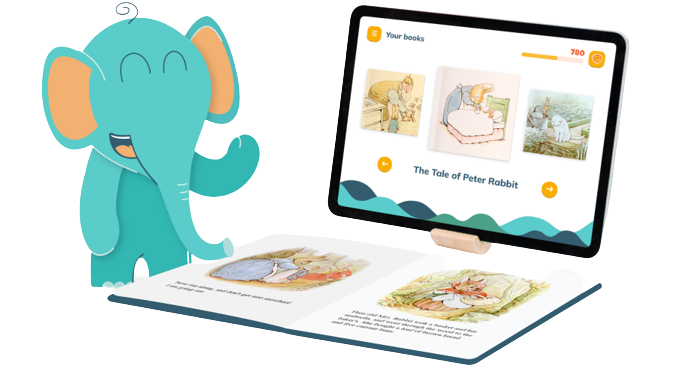Unlocking the Joy of Reading: How Parents Can Support Their Reluctant Reader
Here are six evidence-based strategies parents can employ to support and encourage our reluctant reader.

Here are six evidence-based strategies parents can employ to support and encourage our reluctant reader.

Reading is a fundamental skill that opens doors to knowledge, creativity, and lifelong learning. However, many children experience challenges or reluctance when it comes to reading. As parents, it’s hard to watch our children struggle to learn to read and can be anxiety provoking (you are not alone!). There is good news for parents with struggling readers; there are evidence-based strategies we can employ to support and encourage our reluctant readers to cultivate a love for reading. In this post, we will explore six effective techniques backed by evidence to help our little ones embark on an exciting reading journey.
According to the National Association for the Education of Young Children (NAEYC), creating a reading-friendly environment at home is crucial for nurturing a positive attitude towards books. Designate a cozy and inviting reading corner stocked with a variety of age-appropriate books, magazines, and comics. Involve children in selecting reading materials to increase their engagement and sense of ownership. Creating space for reading should include not only a cozy space to enjoy books, but also time as a family set aside for reading. Parents who model reading in the home environment are also are more likely to have children who engage in reading. So grab a book, have your little one grab a book, and get cozy for in your favorite reading spot!
Research conducted by the American Academy of Pediatrics (AAP) highlights the importance of reading aloud to children to foster a love for stories. Reading aloud using animated voices and expressions brings characters and narratives to life, capturing children's attention and imagination. We recommend choosing captivating books that align with their interests to maximize enjoyment. Reading aloud open kids up to books that are on their interest level, but may be beyond their reading level. Engage in interactive discussions about the story, characters, and predictions to enhance their comprehension and critical thinking skills. One fun activity is to create stories with your child from wordless picture books!

Ello is a great addition to any child’s reading experience. It’s fun, motivating, low-pressure, and affordable.
Trusted sources like the International Literacy Association emphasize the significance of tailoring reading materials to children's interests. By aligning books and resources with their passions and hobbies, parents can increase their motivation to read. Introduce children to a variety of reading materials, such as comic books, graphic novels, and magazines to further captivate their attention - reading is reading! Online platforms and reading apps like Read with Ello, recommended by Common Sense Media, offer interactive stories and educational games that cater to their specific interests, encouraging a positive association with reading.
Consistency is key when it comes to nurturing a reading habit. Set aside dedicated time for reading each day, free from distractions. Create a reading routine that becomes a regular part of your child's day, as this establishes reading as a valued and enjoyable activity. Encourage independent reading, but also engage in shared reading experiences where you take turns reading aloud or read together. Regular reading time fosters a sense of structure and reinforces the importance of reading in their daily lives. If you are looking for guidance on how to get started on a daily reading routine, check out our FREE Raise a Reader toolkit for printables, a personalized book list for books that are “just right” for your child, motivational sticker charts, and more!

Children may respond positively to alternative reading formats beyond traditional books. Consider introducing audiobooks, e-books, and interactive digital reading platforms into their reading routine. Audiobooks, as recommended by the International Literacy Association, offer a multisensory experience that enhances comprehension and fluency. E-books provide interactive features that can engage reluctant readers, while digital platforms like Ello incorporate gamification elements to make reading more enjoyable. By embracing alternative formats, you cater to different learning styles and provide a broader range of options to captivate your child's interest.
Acknowledge and celebrate your child's reading achievements, no matter how small. Set achievable goals together and offer rewards, such as a trip to their favorite park or a special outing, when they reach milestones. Encourage their efforts and emphasize progress rather than focusing solely on perfection. This positive reinforcement creates a sense of accomplishment and motivates them to continue.
By implementing evidence-based strategies such as creating a reading-friendly environment, fostering a love for stories, tailoring reading materials, encouraging regular reading time, exploring alternative formats, and celebrating achievements, parents can help their reluctant reader children develop a positive relationship with reading. Together, we can unlock the doors to a lifelong love of learning and literary exploration. Happy reading!
%20(1).png)